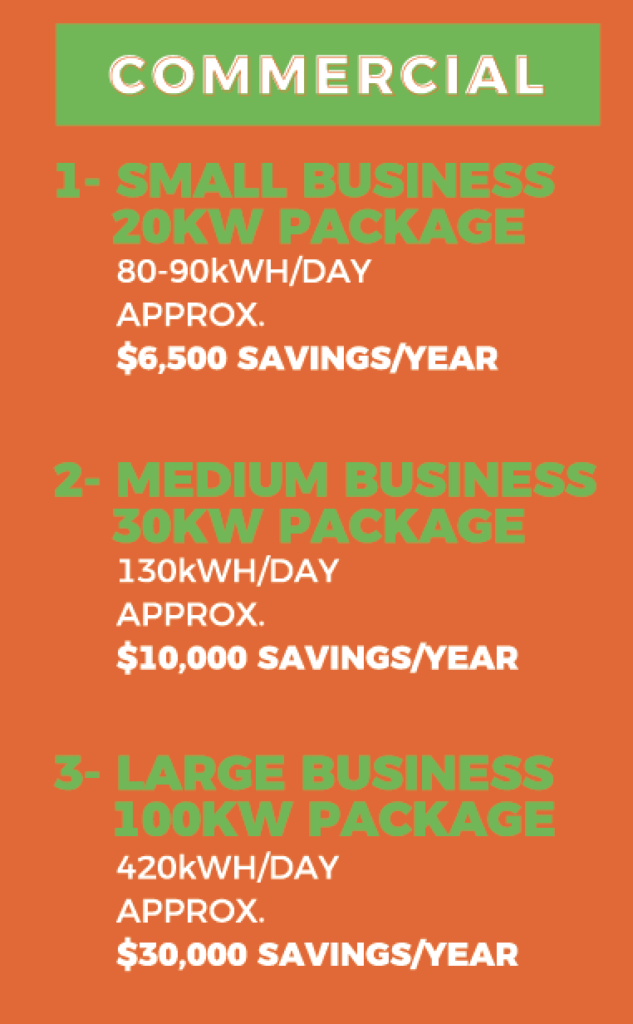Commercial
SHOULD YOUR BUSINESS INSTALL SOLAR WITH US?
Should you install a solar PV system?
- Businesses who are looking for GST and tax offsets
- If you own the building or, if your leasing contract for the building is longer than four years.
- Businesses who are looking to gain Green Star rating certification.
- Businesses that consume enough energy to justify a solar PV system.
- Businesses which have adequate roof or land space to install a solar PV system.

Advantages of Commercial Solar System
Make sure you're protected against unexpected rises in your energy bill
You may not be able to supply all of your business’s power needs with commercial solar panels. Your electric company will still be a part of your life.
Get Low Maintenance, Reliable Energy
Solar panels for commercial use today are low maintenance and genuinely reliable. It is estimated that commercial solar panels will last 20 to 25 years, depending on their quality and workmanship.
Avoid Power Outages
You are 100% exposed to blackouts experienced by your network if your organization depends on the utility power grid. Therefore, when the power goes out due to a storm, any issue with the grid, or scheduled power maintenance, your office may stop working.
Make Your Business' Property More Valuable
Solar panels for commercial use today are low maintenance and genuinely reliable. It is estimated that commercial solar panels will last 20 to 25 years, depending on their quality and workmanship.
Solar Rebates
There are two ways you can recoup some of the costs of setting up and maintaining your rooftop solar and battery system. The first way is through government rebates, which can contribute to the cost of purchasing and setting up your system, depending on where you live and what programs are available. Once you have your system installed, the second way is by selling some of the electricity you generate back into the grid, which is called a feed-in tariff.
The Small-scale Renewable Energy Scheme (SRES) provides a financial incentive for individuals and businesses to install small-scale renewable energy systems such as rooftop solar, solar water heaters and heat pumps. This occurs in the form of small-scale technology certificates (STCs), which are issued up front for a system’s expected power generation (based on its installation date and geographical location) until the SRES expires in 2030.
The price of STCs changes according to market conditions. The total level of subsidy you receive will depend on several factors, including the location and size of the solar system and the price of STCs at the time the system was installed.
More comprehensive information about how STCs are calculated and what you can expect in return is contained in our Guide to Installing Solar for Households and via the Clean Energy Regulator.
